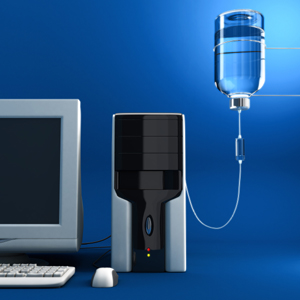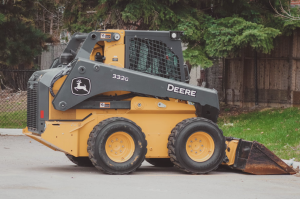How to Make Your Old Computer Run Like a New One

As computers and laptops get older, they have a tendency to slow down, weighed down by their aging operating systems and by the sheer amount of tasks performed over the years. However, don’t feel pressured into buying a completely new model, simply because your old one is lagging behind. It doesn’t take an individual enrolled in electrical engineering courses to understand how to fix a slow laptop. There are a number of possible reasons why your computer is lacking in performance, many of which can be easily addressed. If you feel as though your old laptop is a bit sluggish, then the following tips can help it feel like new again:
 1. Clean it Out
1. Clean it Out
Your laptop has probably acquired a fair amount of dust and dirt throughout its long years of use. These little specks find their way into the crooks and crannies of your laptop, accumulating from within. However, the collecting dust over time does more than just make your laptop dirty; it can also cause your system to become inefficient and slow. In addition, the dust can cause your hardware to overheat, leading to more serious performance issues in the future. Luckily, cleaning it out is relatively easy – a compressed can of air or carefully taking apart your laptop can help you remove the accumulated dust.
2. Not Enough RAM
RAM is a type of computer data storage that allows your laptop to open programs and files, and run efficiently. However, a bad RAM can significantly slow down your computer, or even cause programs to crash. Or if you have insufficient RAM, it limits your laptop’s processing power, restricting its performance. However, this problem can be solved by upgrading your hardware to accommodate more RAM. Relatively inexpensive and easily installable, adding more power to your laptop can allow it to run quickly and effectively.
3. Unnecessary Programs
Do you have a lot of programs and files on your laptop that have not been used for quite a while? These unused applications are taking up valuable hard drive space, slowing down the overall performance. Therefore, you’ll want to take some time to determine which programs can be uninstalled, and which files are best sent to the Recycle Bin.
4. Malware
One reason why your laptop is running slowly may result from picking up an unwelcome visitor during your Internet session. Malware such as viruses, Trojan horses or spyware can affect your laptop’s performance, and even try to steal your personal data. If you suspect that your computer has fallen prey to malware, then installing a good anti-virus software program, such as Microsoft Security Essentials, can help you address the threat.
5. Defragmented Files
Whenever you create a file, your operating system typically writes the new file at the end of the previous one. This causes the file to become fragmented, causing your hard drive to work hard to locate every part. However, Windows operating systems has a process that allows you to defragment your files, eliminating the fragments that are slowing down your computer. Not only does it clean up your system, it also reduces system startup times, allowing your laptop to boot up faster.





